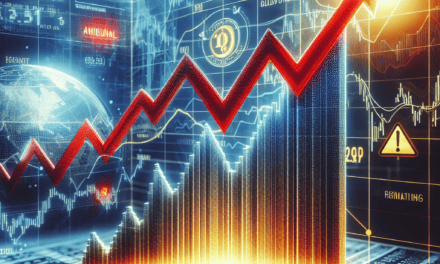“Austria Turns a New Leaf: Russian Gas Supply to Halt This Saturday”
Introduction
Austria has announced a significant shift in its energy policy with the decision to halt Russian gas supplies starting this Saturday. This move marks a pivotal moment in Austria’s energy strategy, reflecting broader geopolitical tensions and a commitment to diversifying energy sources. The decision comes amid increasing pressure on European nations to reduce dependency on Russian energy in response to geopolitical conflicts and to enhance energy security. Austria’s government is now focused on securing alternative energy sources to ensure a stable supply for its citizens and industries, while also accelerating investments in renewable energy infrastructure. This development is expected to have wide-ranging implications for Austria’s economy and its energy partnerships within the European Union.
Impact Of Austria’s Decision To Halt Russian Gas Supplies On The European Energy Market
Austria’s recent announcement to halt Russian gas supplies starting Saturday marks a significant shift in the European energy landscape, reflecting broader geopolitical tensions and the continent’s ongoing efforts to diversify its energy sources. This decision, while primarily driven by Austria’s strategic interests, is poised to have far-reaching implications for the European energy market, influencing supply dynamics, pricing structures, and energy security strategies across the region.
To begin with, Austria’s move underscores the growing trend among European nations to reduce dependency on Russian energy imports. This trend has been accelerated by geopolitical tensions and the need for energy security, prompting countries to seek alternative sources and invest in renewable energy. Austria’s decision is likely to encourage other European nations to reassess their energy policies, potentially leading to a more diversified and resilient energy market. As countries explore alternative suppliers, such as Norway, Algeria, and the United States, the European energy market may witness a shift in trade patterns, with new alliances and partnerships emerging.
Moreover, the halt in Russian gas supplies is expected to impact gas prices across Europe. In the short term, the reduction in supply could lead to increased prices, as countries scramble to secure alternative sources to meet their energy needs. This price volatility may pose challenges for industries and consumers alike, potentially leading to higher production costs and increased living expenses. However, in the long term, the diversification of energy sources and the development of renewable energy infrastructure could stabilize prices and enhance energy security.
In addition to affecting prices, Austria’s decision is likely to accelerate the transition towards renewable energy in Europe. As countries seek to reduce their reliance on fossil fuels, investments in renewable energy technologies such as wind, solar, and hydroelectric power are expected to increase. This shift not only aligns with the European Union’s climate goals but also enhances energy independence by reducing reliance on external suppliers. Consequently, the European energy market may witness a surge in innovation and technological advancements, driving the growth of a sustainable energy sector.
Furthermore, Austria’s decision highlights the importance of regional cooperation in addressing energy challenges. As countries navigate the complexities of energy supply and demand, collaboration and coordination among European nations will be crucial in ensuring a stable and secure energy market. Initiatives such as the European Green Deal and the development of cross-border energy infrastructure can facilitate this cooperation, enabling countries to share resources and expertise in pursuit of common energy goals.
In conclusion, Austria’s announcement to halt Russian gas supplies represents a pivotal moment for the European energy market, with significant implications for supply dynamics, pricing, and energy security. While the immediate impact may be characterized by price volatility and supply challenges, the long-term effects are likely to include a more diversified and resilient energy market, driven by investments in renewable energy and regional cooperation. As Europe continues to navigate the complexities of the global energy landscape, Austria’s decision serves as a reminder of the importance of strategic planning and collaboration in achieving a sustainable and secure energy future.
Austria’s Energy Strategy: Alternatives To Russian Gas
Austria has recently announced a significant shift in its energy strategy, declaring that it will halt the import of Russian gas starting this Saturday. This decision marks a pivotal moment in Austria’s energy policy, reflecting broader geopolitical tensions and a commitment to diversifying energy sources. As the nation prepares for this transition, it is essential to explore the alternatives that Austria is considering to replace Russian gas and ensure energy security.
The decision to cease Russian gas imports is not made lightly, given that Russia has been a major supplier of natural gas to Austria for decades. However, the geopolitical landscape has changed dramatically, prompting Austria to reassess its energy dependencies. The ongoing conflict in Ukraine and the resulting sanctions on Russia have underscored the risks associated with relying heavily on a single supplier. Consequently, Austria is now focused on reducing its vulnerability and enhancing its energy independence.
In light of this, Austria is actively pursuing a multi-faceted approach to secure alternative energy sources. One of the primary strategies involves increasing the import of liquefied natural gas (LNG) from other countries. By diversifying its suppliers, Austria aims to mitigate the risks associated with geopolitical instability. The country is exploring partnerships with nations such as Norway, Qatar, and the United States, which are known for their robust LNG production capabilities. This shift not only promises to stabilize Austria’s energy supply but also aligns with the European Union’s broader objective of reducing reliance on Russian energy.
Moreover, Austria is investing in renewable energy sources as part of its long-term strategy to achieve energy sustainability. The nation has already made significant strides in harnessing wind, solar, and hydropower, and these efforts are expected to intensify in the coming years. By expanding its renewable energy infrastructure, Austria aims to reduce its carbon footprint while simultaneously decreasing its dependence on fossil fuels. This transition is supported by government incentives and policies designed to encourage investment in clean energy technologies.
In addition to these measures, Austria is also focusing on enhancing energy efficiency across various sectors. By implementing energy-saving technologies and practices, the country can reduce overall energy consumption, thereby lessening the impact of the Russian gas supply halt. This approach not only contributes to environmental sustainability but also offers economic benefits by lowering energy costs for consumers and businesses alike.
Furthermore, Austria is collaborating with neighboring countries to strengthen regional energy networks. By enhancing interconnectivity with the European energy grid, Austria can access a more diverse range of energy sources and improve the resilience of its energy system. This regional cooperation is crucial in ensuring a stable and reliable energy supply, particularly during periods of high demand or unexpected disruptions.
As Austria embarks on this new energy path, it faces both challenges and opportunities. The transition away from Russian gas requires careful planning and coordination to avoid potential disruptions. However, by embracing a diversified energy strategy, Austria is positioning itself to achieve greater energy security and sustainability in the long run. This move not only reflects Austria’s commitment to adapting to changing geopolitical realities but also underscores its dedication to building a resilient and environmentally responsible energy future.
Economic Implications For Austria Following The Russian Gas Supply Halt
Austria’s recent announcement to halt Russian gas supplies starting this Saturday marks a significant shift in the nation’s energy strategy, with profound economic implications. This decision, driven by geopolitical tensions and a broader European push for energy independence, necessitates a comprehensive examination of its potential impact on Austria’s economy. As the country has historically relied heavily on Russian gas, the cessation of this supply will undoubtedly pose challenges, yet it also presents opportunities for diversification and innovation within the energy sector.
To begin with, the immediate economic impact of halting Russian gas supplies is likely to be felt across various sectors. Austria’s industrial base, which includes energy-intensive industries such as manufacturing and chemicals, may face increased operational costs. These industries have traditionally benefited from the relatively low cost of Russian gas, and the sudden need to source alternative energy supplies could lead to higher production expenses. Consequently, this may result in increased prices for consumers, potentially affecting the overall inflation rate in the country.
Moreover, the energy sector itself will undergo significant transformation. Austria will need to accelerate its efforts to secure alternative energy sources, both domestically and through imports. This shift may involve increased investment in renewable energy infrastructure, such as wind, solar, and hydroelectric power. While this transition aligns with Austria’s long-term sustainability goals, the initial investment required could strain public finances and necessitate policy adjustments. However, in the long run, this move could enhance Austria’s energy security and reduce its vulnerability to external geopolitical pressures.
In addition to the direct economic effects, the halt in Russian gas supplies may also have broader implications for Austria’s trade relationships. As Austria seeks to diversify its energy sources, it may strengthen ties with other gas-exporting countries, potentially reshaping its trade dynamics. This realignment could open new avenues for economic collaboration and investment, fostering a more resilient and diversified economic landscape. Furthermore, Austria’s commitment to reducing its reliance on Russian gas may enhance its standing within the European Union, aligning with the bloc’s broader energy independence objectives.
On the domestic front, the Austrian government will likely face pressure to mitigate the economic impact on households and businesses. Policymakers may need to implement measures such as subsidies or tax incentives to support the transition to alternative energy sources. Additionally, public communication will be crucial in managing expectations and ensuring that citizens understand the rationale behind the decision and its long-term benefits.
While the immediate economic implications of halting Russian gas supplies are challenging, this decision also presents an opportunity for Austria to position itself as a leader in sustainable energy. By investing in renewable energy and fostering innovation within the sector, Austria can not only enhance its energy security but also contribute to global efforts to combat climate change. This transition, though complex, has the potential to drive economic growth and create new jobs in emerging industries.
In conclusion, Austria’s decision to halt Russian gas supplies marks a pivotal moment in the nation’s energy policy, with significant economic implications. While the immediate challenges are considerable, the long-term benefits of diversifying energy sources and enhancing sustainability are substantial. Through strategic investments and policy measures, Austria can navigate this transition successfully, ultimately strengthening its economy and contributing to a more sustainable future.
How Austria’s Gas Supply Halt Affects Its Relationship With Russia

Austria’s recent announcement to halt Russian gas supplies starting Saturday marks a significant shift in its energy policy and has profound implications for its diplomatic relationship with Russia. This decision comes amid growing tensions between Russia and the European Union, as well as increasing pressure on EU member states to reduce their dependency on Russian energy resources. As Austria navigates this complex geopolitical landscape, the move to cease Russian gas imports is both a strategic and symbolic gesture, reflecting broader European efforts to diversify energy sources and enhance energy security.
Historically, Austria has maintained a pragmatic relationship with Russia, largely driven by its reliance on Russian natural gas. This dependency has been a cornerstone of Austria’s energy strategy, with Russian gas accounting for a substantial portion of its energy imports. However, the geopolitical climate has shifted dramatically in recent years, particularly following Russia’s actions in Ukraine and the subsequent sanctions imposed by the EU. These developments have prompted Austria to reassess its energy partnerships and seek alternatives that align more closely with its political and economic interests.
The decision to halt Russian gas supplies is not merely a reaction to external pressures but also a reflection of Austria’s commitment to energy diversification. In recent years, Austria has invested significantly in renewable energy sources, such as wind, solar, and hydropower, aiming to reduce its carbon footprint and enhance energy independence. By cutting ties with Russian gas, Austria is taking a decisive step towards achieving these goals, while also signaling its alignment with broader EU energy policies that prioritize sustainability and security.
Moreover, this move is likely to have a ripple effect on Austria’s diplomatic relations with Russia. While the two countries have historically enjoyed a stable relationship, largely insulated from broader geopolitical tensions, the cessation of gas imports introduces a new dynamic. It remains to be seen how Russia will respond to Austria’s decision, but it is likely to view the halt as a challenge to its influence in the region. This could lead to a recalibration of diplomatic ties, with potential implications for trade, investment, and political cooperation.
In addition to its impact on Austria-Russia relations, the gas supply halt also underscores the importance of regional cooperation within the EU. As Austria seeks to mitigate the potential economic impact of this decision, it will likely look to its European partners for support in securing alternative energy sources. This could involve increased collaboration on energy infrastructure projects, such as interconnectors and storage facilities, as well as joint investments in renewable energy technologies. By working together, EU member states can enhance their collective energy resilience and reduce their vulnerability to external pressures.
In conclusion, Austria’s announcement to halt Russian gas supplies represents a pivotal moment in its energy policy and diplomatic relations. While the decision is driven by a combination of geopolitical, economic, and environmental factors, it also reflects Austria’s commitment to aligning with EU energy objectives. As the country navigates the challenges and opportunities presented by this shift, it will need to balance its domestic energy needs with its broader strategic interests. Ultimately, Austria’s ability to successfully transition away from Russian gas will depend on its capacity to foster regional cooperation and invest in sustainable energy solutions.
The Role Of Renewable Energy In Austria’s Future Energy Plans
Austria’s recent announcement to halt Russian gas supplies starting Saturday marks a significant turning point in the nation’s energy strategy, underscoring the critical role of renewable energy in shaping Austria’s future energy plans. This decision, driven by geopolitical tensions and a growing commitment to sustainability, highlights the urgent need for Austria to diversify its energy sources and reduce its reliance on fossil fuels. As the country navigates this transition, renewable energy emerges as a cornerstone of its strategy, promising not only energy security but also environmental benefits.
In recent years, Austria has made substantial progress in integrating renewable energy into its national grid. The country is endowed with abundant natural resources, including hydropower, wind, and solar energy, which have been harnessed to meet a significant portion of its energy needs. Hydropower, in particular, has been a longstanding pillar of Austria’s energy landscape, contributing to over 60% of its electricity production. This reliance on hydropower has provided a stable foundation upon which other renewable sources can be developed.
Moreover, the Austrian government has set ambitious targets to further increase the share of renewables in its energy mix. By 2030, Austria aims to produce 100% of its electricity from renewable sources, a goal that necessitates substantial investments in infrastructure and technology. To achieve this, the government is implementing policies that encourage the development of wind and solar power projects, as well as initiatives to enhance energy efficiency across various sectors. These efforts are complemented by financial incentives and regulatory frameworks designed to attract private investment and foster innovation in the renewable energy sector.
Transitioning to a renewable-based energy system also requires addressing the challenges associated with energy storage and grid stability. As renewable energy sources are inherently variable, ensuring a reliable supply of electricity necessitates advancements in energy storage technologies. Austria is actively exploring solutions such as battery storage systems and pumped hydro storage to mitigate the intermittency of renewables and maintain grid stability. These technologies are crucial for balancing supply and demand, particularly during periods of low renewable energy generation.
Furthermore, Austria’s commitment to renewable energy is not only driven by environmental considerations but also by economic and social factors. The transition to a green economy presents opportunities for job creation and economic growth, particularly in the fields of renewable energy technology and infrastructure development. By investing in renewables, Austria can stimulate innovation, enhance its energy independence, and reduce its carbon footprint, aligning with the broader European Union objectives for climate neutrality by 2050.
In conclusion, Austria’s decision to halt Russian gas supplies underscores the pivotal role of renewable energy in its future energy plans. As the country seeks to enhance its energy security and sustainability, renewables offer a viable path forward, supported by Austria’s natural resources and governmental commitment. While challenges remain, particularly in terms of energy storage and grid integration, Austria’s proactive approach and strategic investments position it as a leader in the transition to a renewable energy future. This shift not only addresses immediate energy concerns but also contributes to long-term environmental and economic resilience, setting a precedent for other nations to follow.
Austria’s Gas Supply Halt: A Catalyst For Energy Policy Reform In Europe
Austria’s recent announcement to halt Russian gas supplies starting this Saturday marks a significant turning point in the European energy landscape. This decision, while primarily driven by geopolitical tensions and the ongoing conflict in Ukraine, also underscores a broader shift towards energy independence and sustainability within the European Union. As Austria prepares to sever its reliance on Russian gas, the move is expected to catalyze a series of energy policy reforms across the continent, prompting other nations to reassess their energy strategies and dependencies.
The decision to halt Russian gas supplies is not one that Austria has taken lightly. For decades, Austria, like many European countries, has relied heavily on Russian gas to meet its energy needs. This dependency has been a source of concern, particularly in light of Russia’s increasing geopolitical assertiveness. The ongoing conflict in Ukraine has further exacerbated these concerns, highlighting the vulnerabilities associated with relying on a single, politically volatile source for energy. Consequently, Austria’s decision to cut ties with Russian gas is as much about national security as it is about energy policy.
In the wake of this announcement, Austria is expected to accelerate its transition towards renewable energy sources. The country has already made significant strides in this direction, with investments in wind, solar, and hydroelectric power. By reducing its reliance on fossil fuels, Austria aims to not only enhance its energy security but also contribute to the EU’s broader climate goals. This shift towards renewables is likely to be mirrored by other European nations, as they too seek to reduce their dependence on Russian energy and bolster their own energy security.
Moreover, Austria’s decision is likely to have significant implications for the European energy market. As one of the key transit countries for Russian gas into Europe, Austria’s halt in supplies could lead to disruptions in the energy supply chain, affecting neighboring countries that rely on Austrian infrastructure for their gas imports. This potential disruption underscores the need for a more integrated and resilient European energy market, one that can withstand geopolitical shocks and ensure a stable supply of energy across the continent.
In response to these challenges, the European Union is expected to intensify its efforts to diversify its energy sources and enhance its energy infrastructure. Initiatives such as the European Green Deal and the REPowerEU plan, which aim to reduce the EU’s reliance on fossil fuels and promote renewable energy, are likely to gain renewed momentum. Additionally, the EU may seek to strengthen its partnerships with alternative energy suppliers, such as Norway and Algeria, to ensure a more diversified and secure energy supply.
In conclusion, Austria’s decision to halt Russian gas supplies is a bold move that reflects the changing dynamics of the European energy landscape. While the immediate impact of this decision may pose challenges, it also presents an opportunity for Europe to accelerate its transition towards a more sustainable and secure energy future. As Austria and other European nations navigate this transition, the lessons learned and the policies implemented will undoubtedly shape the continent’s energy landscape for years to come. Through collaboration and innovation, Europe can turn this moment of uncertainty into a catalyst for positive change, paving the way for a more resilient and sustainable energy system.
Public Reaction In Austria To The Russian Gas Supply Halt Announcement
The recent announcement by Austria regarding the cessation of Russian gas supplies starting this Saturday has sparked a wave of reactions across the nation. This decision, which marks a significant shift in Austria’s energy policy, has been met with a mixture of concern, understanding, and calls for swift adaptation. As the country grapples with the implications of this move, public sentiment reflects a complex interplay of apprehension and resilience.
To begin with, many Austrians express concern over the potential economic impact of halting Russian gas imports. Austria has long relied on Russian gas to meet its energy needs, and the sudden cessation raises questions about energy security and economic stability. Citizens worry about the possibility of increased energy prices, which could strain household budgets and affect the cost of living. Businesses, particularly those in energy-intensive industries, are also apprehensive about potential disruptions and increased operational costs. This economic uncertainty is a significant factor in the public’s reaction, as people brace for the potential ripple effects across various sectors.
However, alongside these concerns, there is also a notable understanding of the broader geopolitical context that has led to this decision. Many Austrians recognize the importance of reducing dependency on Russian energy sources, especially in light of recent geopolitical tensions. The move is seen by some as a necessary step towards diversifying energy sources and strengthening national security. This perspective is bolstered by the government’s assurances that efforts are underway to secure alternative energy supplies and invest in renewable energy infrastructure. As a result, there is a segment of the population that views this as an opportunity for Austria to transition towards a more sustainable and self-reliant energy future.
Moreover, the announcement has prompted discussions about the role of renewable energy in Austria’s future energy landscape. Environmental advocates and experts have long called for a shift towards greener energy sources, and the current situation underscores the urgency of these calls. The public discourse is increasingly focused on the potential for renewable energy to fill the gap left by Russian gas, with many advocating for accelerated investment in wind, solar, and hydroelectric power. This shift in focus is seen as a positive development by those who believe that a sustainable energy transition is not only feasible but also essential for long-term economic and environmental stability.
In addition to economic and environmental considerations, the public reaction is also shaped by a sense of national resilience and adaptability. Austrians have historically demonstrated an ability to navigate challenges with pragmatism and innovation. This spirit is evident in the current discourse, as citizens and policymakers alike emphasize the importance of unity and collaboration in overcoming the challenges posed by the gas supply halt. There is a growing recognition that while the transition may be challenging, it also presents an opportunity for Austria to emerge stronger and more resilient.
In conclusion, the announcement of the Russian gas supply halt has elicited a multifaceted response from the Austrian public. While concerns about economic impact and energy security are prevalent, there is also a strong undercurrent of understanding and optimism about the potential for positive change. As Austria navigates this pivotal moment, the public’s reaction reflects a blend of caution and hope, underscoring the nation’s capacity to adapt and thrive in the face of change.
Q&A
1. **What is the announcement about?**
Austria has announced a halt to Russian gas supplies starting Saturday.
2. **When will the halt begin?**
The halt will begin on Saturday.
3. **Why is Austria halting Russian gas supplies?**
The specific reasons for the halt were not detailed in the question, but such decisions are often due to geopolitical tensions, sanctions, or a shift towards alternative energy sources.
4. **How might this affect Austria’s energy supply?**
The halt could lead to energy shortages or increased reliance on alternative energy sources and suppliers.
5. **What are potential alternatives for Austria’s gas supply?**
Austria might seek gas from other countries, increase renewable energy usage, or enhance energy efficiency measures.
6. **How could this impact Austria’s economy?**
The halt could lead to increased energy costs, affecting industries and consumers, and potentially slowing economic growth.
7. **What are the broader implications for Europe?**
This move could influence other European countries’ energy policies, increase energy prices, and affect EU-Russia relations.
Conclusion
Austria’s announcement to halt Russian gas supplies starting Saturday marks a significant shift in its energy policy, likely driven by geopolitical tensions and a push for energy diversification. This decision underscores Austria’s commitment to reducing dependency on Russian energy, aligning with broader European efforts to enhance energy security and transition towards more sustainable energy sources. The move may have immediate economic implications, potentially affecting energy prices and supply stability, while also accelerating Austria’s investment in alternative energy infrastructure and partnerships.





